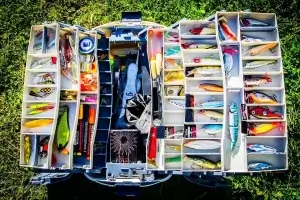Fishing is traditionally done on a warm, sunny day when the fish are at their most active. But depending on where you’re situated, the winter can set in for a number of months at a time, and it may seem impossible to head out to the nearest lake and try and catch something.
Fishing in cold weather, however, is just as simple as any other type of fishing, and only requires that you take the time to prepare in advance.
1. Timing the Weather
Most fish that live in colder-climate regions tend to be at their lowest activity after a cold front hits, and choosing the timing of when to throw the cast in can make a big difference, and sometimes it’s best to just stay at home and enjoy online casino NZ games.
As a general rule, most fish will begin to feed just before the front passes, meaning that they’ll be their most active at certain spots around the body of water. And while it may be difficult to determine exactly where they’ll be – as it depends very much on the temperature and volatility of the water – once the group has been found, there should be plenty to catch.
2. The Location
In a river, dam, or lake, fish tend to move around to the spots that suit them the best, and this is no different when colder weather strikes.
Many will migrate to an area that has an abundance of food available even when it’s cold, and it’s best to do the research to find out exactly where these spots are, otherwise it can become impossible to find any biters.
3. The Right Bait
Lures work best in spring and summer, but they’re not nearly as efficient during winter periods. When the temperature of the water starts to plummet, the prey that fish usually eat will generally begin to slow down, and this can become a problem for fishermen that tend to use fast-moving lures.
For this reason, it’s best to rather opt for live bait that will become accustomed to the temperature of the water and adjust accordingly, and increasing the chance of catching something, even if the water is frigid.
4. Winter Gear
Being out on the water means that you will not have access to any buildings or tree cover, and means that you will bear the full brunt of any cold winter winds. On top of this, water on the line can eventually begin to freeze, so it’s best to make sure that the line is always conditioned.
Wearing warm, insulated clothing that covers all of your skin can help avoid any serious cold-related conditions, and keeping your fingers warm means the difference between losing a rod or catching a good haul.
5. Be Safe
Never fish alone during the colder seasons, even if you consider yourself a pro. Always have the right safety equipment available, as falling in the water can become extremely serious.
Wool and synthetic fibres are the best materials for keeping the cold at bay, and a life jacket can and will be a lifesaver.




